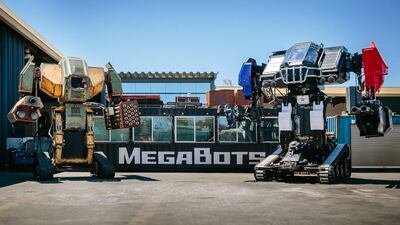On a recent trip to Europe, I visited a McDonald’s outlet for a quick bite.
The queue was extremely long, so I automatically headed over to the self-serve kiosk, punched in my order and received it from a dedicated counter. I was in and out in no time.
Artificial intelligence (AI), robots and automation will replace human tasks in the food service industry. Earlier this year, in an interview with CNBC, Greg Creed, the chief executive of Yum Brands, which owns several fast-food brands including Pizza Hut, KFC and Taco Bell, stated that in a decade, many fast-food restaurants would be automated.
Amazon, the online retail juggernaut, introduced Amazon Go, a grocery story in Seattle with no checkout, where customers are charged on their Amazon account. The technology automatically detects when products are taken from and returned to the Shelf and is able to keep track using a virtual cart.
That does not just stop at food and retail. Last week Sheikh Mohammed Bin Rashid Al Maktoum, Vice President and Ruler of Dubai, announced the launch of the UAE’s Artificial Intelligence Strategy, the first project under UAE Centennial 2017, where AI will be embraced in both public and private sectors. In addition there has been the appointment of the UAE's first Minister of State for Artificial Intelligence, Omar Bin Sultan, showcasing the UAE's strong belief in how AI will be an important factor of our future.
But what does that mean for small business owners? How will AI impact small businesses?
For starters many jobs that exist today, especially within the service sector may not exist in the future. Jobs like travel agents, auditors and accountants will be replaced with AI technologies.
When it comes to retail, online shopping presents a threat to existing stores. Online shopping platforms such as Dubai-based The Modist offer same-day delivery services and the latest curated high-fashion products for modestly dressed women, sparing shoppers the time to mix and match outfits that are modest yet fashionable.
Going with the flow, is international fashion retailer Bebe, which announced that they will close their physical stores around the world and offer their products via their online store only.
Many young fashion designers in the GCC took the matter one step further by having their online stores solely present on social media and offering cash on delivery and online banking payment methods.
______________
Read more:
Will video marketing make the written word obsolete?
Pause and reflect to avoid regret in the end
Playtime brings creative success
______________
Visiting retailers will be more than just shopping and more and more shops are offering in-store promotions and experiences to drive traffic to their stores.
From a personal experience advances in technologies such as high-speed internet, video-conferencing and fast info-sharing platforms mean that I could work from anywhere in the world. My team members at a new online venture that my sister and I are launching are scattered around the region and Europe. The job is equally done whether in an office or out but that does not mean that we cancelled out human interaction. In fact we ensure to factor in physical human interaction time.
But as you prepare to embrace the latest technologies in your business, whether it is AI, augmented reality, or virtual reality, and automate as many manual processes as possible, keep in mind that the human experience will become more and more valuable. People will always have an advantage over robots no matter what. Professions such as nurses, care giving and horticulture will always need humans.
Here is what you need to keep in mind as you integrate AI in your small business:
Put yourself in your customers’ shoes and test what competitors or other businesses are offering. Evaluate what you like and dislike and plan how your customers can benefit from the technology to interact with your business.
Focus on the customer experience that your business delivers. Provide a personal touch and always work on enhancing your customer service. That is what keeps customers coming back to your business - what keeps them loyal.
Plan a specific AI implementation strategy. Evaluate which specific applications will be useful for your business. For instance, if you own a restaurant, you may want to consider automating the food ordering process. In the case of a fashion store, you may want to consider applying augmented reality solutions that would allow clients to try on your products online before purchasing them, sort of like a virtual changing room. Or you may consider a sole online presence.
Lastly, before you apply AI, ensure that you have the IT infrastructure to support it and that you keep up-to-date with the industry’s latest even if you are not looking to jump the wagon yet. That way you can see what will emerge that will benefit your business and what your competitors are doing so that you do not fall behind.
Manar Al Hinai is an award-winning Emirati writer who manages her branding and marketing consultancy in Abu Dhabi.

